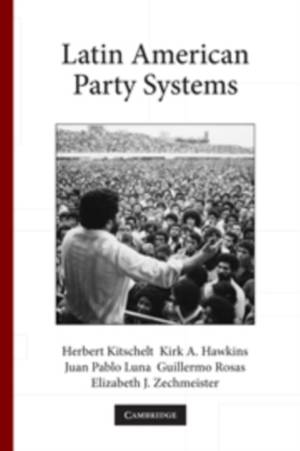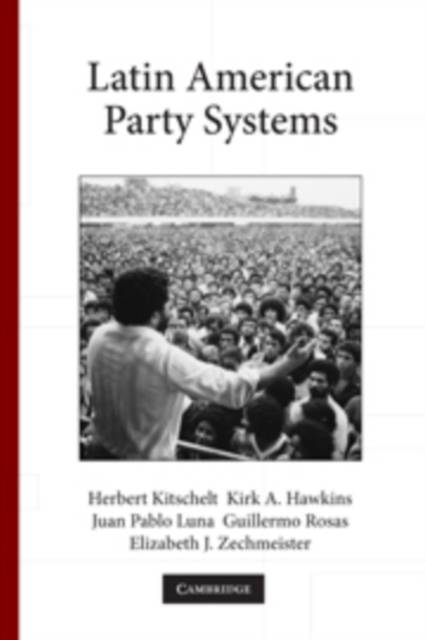
Bedankt voor het vertrouwen het afgelopen jaar! Om jou te bedanken bieden we GRATIS verzending (in België) aan op alles gedurende de hele maand januari.
- Afhalen na 1 uur in een winkel met voorraad
- In januari gratis thuislevering in België
- Ruim aanbod met 7 miljoen producten
Bedankt voor het vertrouwen het afgelopen jaar! Om jou te bedanken bieden we GRATIS verzending (in België) aan op alles gedurende de hele maand januari.
- Afhalen na 1 uur in een winkel met voorraad
- In januari gratis thuislevering in België
- Ruim aanbod met 7 miljoen producten
Zoeken
€ 168,95
+ 337 punten
Uitvoering
Omschrijving
Political parties provide a crucial link between voters and politicians. This link takes a variety of forms in democratic regimes, from the organization of political machines built around clientelistic networks to the establishment of sophisticated programmatic parties. Latin American Party Systems provides a novel theoretical argument to account for differences in the degree to which political party systems in the region were programmatically structured at the end of the twentieth century. Based on a diverse array of indicators and surveys of party legislators and public opinion, the book argues that learning and adaptation through fundamental policy innovations are the main mechanisms by which politicians build programmatic parties. Marshalling extensive evidence, the book's analysis shows the limits of alternative explanations and substantiates a sanguine view of programmatic competition, nevertheless recognizing that this form of party system organization is far from ubiquitous and enduring in Latin America.
Specificaties
Betrokkenen
- Auteur(s):
- Uitgeverij:
Inhoud
- Aantal bladzijden:
- 416
- Taal:
- Engels
- Reeks:
Eigenschappen
- Productcode (EAN):
- 9780521114950
- Verschijningsdatum:
- 22/02/2010
- Uitvoering:
- Hardcover
- Formaat:
- Genaaid
- Afmetingen:
- 155 mm x 231 mm
- Gewicht:
- 929 g

Alleen bij Standaard Boekhandel
+ 337 punten op je klantenkaart van Standaard Boekhandel
Beoordelingen
We publiceren alleen reviews die voldoen aan de voorwaarden voor reviews. Bekijk onze voorwaarden voor reviews.









